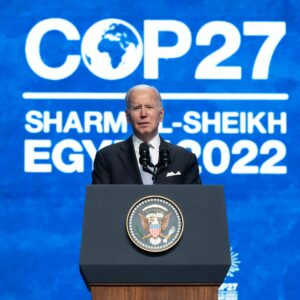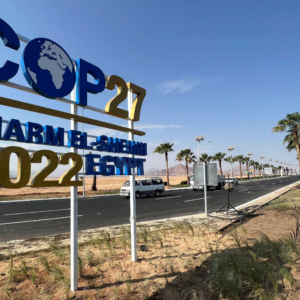With the rising cost of minerals and the sticker price of EVs higher than their gas-consuming counterparts, lawmakers should look to reduce barriers and avoid protectionist policies.
Author: Nick Loris
Without Regulatory Reform, Biden’s Climate Victory Lap Will Face Roadblocks
With the right reforms, Congress and the administration can empower American energy producers to lower costs for families and businesses, diversify the world’s energy portfolio, and make progress toward climate targets.
COP27 Needs More than Doomism
Communicating the urgency to address climate change is one thing, but unfounded doomism is counterproductive.
President Biden is Right. America Needs Meaningful Permitting Reform
In a few short months, the United States will have a new Congress. Their top priority should be permitting reform.
One Simple Policy Fix to Spur More Research, Development, and Innovation
R&D is fundamental for American competitiveness, meeting the world’s energy needs, and addressing the risks that climate change poses.
Countering OPEC+ Requires a Change in Posture and Policy
Rather than casting misplaced blame, the way for President Biden to give consumers confidence and to combat OPEC+ is to empower American energy producers and innovators.
Time for Big Tent Permitting Reform
It’s time for policymakers to be bold and thorough so that innovators, investors, and the private sector can meet consumers’ needs with better environmental outcomes.
Dutch Farmer Protests, High Gas Prices Indicate Need for Pro-Consumer Climate Policy
Mob rule shouldn’t dictate policy, but the Dutch protests should be a wakeup call for policymakers to implement the necessary policy reforms to slash both prices and emissions.
After West Virginia v. EPA, Time for Elected Officials to Step Up
Many climate hawks may see the Supreme Court’s ruling as a setback for climate progress. Instead, it should be an opportunity for policymakers to step up, double down on innovation, and empower the private sector to deliver the energy and climate solutions Americans and the rest of the world need.
Want to Cut Inflation and Emissions? Cut Tariffs
Knowing very well that inflation is a top concern, the Biden administration must act. One immediate action is to cut tariffs.









